
Because stallions are usually kept only for breeding purposes, many horse owners have no experience with them or their sex-linked behaviors. And we certainly don’t expect male displays from our geldings, having had them castrated in large part to eliminate those very behaviors.
But geldings do sometimes act like stallions, and it can cause inconvenience, frustration, and even injury to themselves and others.
Here we’ll look at some specific behaviors natural to stallions but not expected or wanted in a gelding. We’ll also give you some tips on how to manage or eliminate stallion-like behavior in geldings.
What Causes ‘Studdy’ Behavior?
When we castrate a male horse, we remove his testes, the source of the male hormone testosterone. Unfortunately, though, some of the greatest effects of testosterone occur long before castration—because colts in utero have very high testosterone levels. The mare’s pregnancy hormones stimulate his gonads, too, so the fetus’ testes are pumping out a lot of male hormones, called androgens.
These androgens act on his brain to masculinize it. Males have a much larger sexually dimorphic nucleus—that is, the part of the brain that differs from males to females. So the result of this early influence is that many geldings still behave like stallions, exhibiting behaviors such as showing the flehmen response (top lip curled up), trying to breed mares, fighting with other geldings, acting aggressively with people, attacking foals, and/or herding mares.
Bu hikaye Horse and Rider dergisinin Winter 2020 sayısından alınmıştır.
Start your 7-day Magzter GOLD free trial to access thousands of curated premium stories, and 9,000+ magazines and newspapers.
Already a subscriber ? Giriş Yap
Bu hikaye Horse and Rider dergisinin Winter 2020 sayısından alınmıştır.
Start your 7-day Magzter GOLD free trial to access thousands of curated premium stories, and 9,000+ magazines and newspapers.
Already a subscriber? Giriş Yap
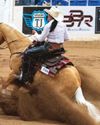
The Horse
LIFE TAKES US DOWN different paths, but I seem to be on just one, which is with the horse.
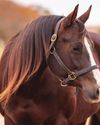
Decoding the Diseases Examined by AQHA's Six-Panel Test
The six-panel test is a diagnostic tool used to assess the genetic predispositions of horses. It's meant to discover if a horse has or is a carrier for certain hereditary diseases and traits.
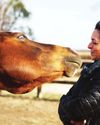
Love is Good
All horses are assured a hopeful, compassionate plan of care at This Old Horse, a program that helps not only horses but people, too.

HORSE PACKING 101
Take your trail riding to the next level with nature-filled adventures in the back or front country.
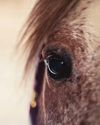
NEW HORSE; NEW PROBLEMS
Anew horse can bring excitement and energy to the barn, and even reinvigorate your passion. However, there are also a myriad of new problems that can come with a new horse, so learn how to introduce him properly to avoid these common issues.
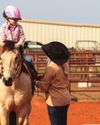
First-Timer Tips
Heading to a young rider's first event with their horse can be intimidating. Use these myths and truths to make it smoother sailing for yourself and your young rider.
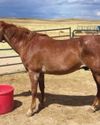
Re-Rescued: Aslan's Story
One special gelding learns about three different types of love during his rescue journey.
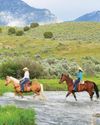
The Country's Hottest Horse Motels
Take your next trail-riding adventure to the next level by staying at one of these six horse motels across the United States.
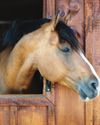
Outbreak! What We've Learned
Learn how disease outbreaks in recent years have changed the horse industry, and why it's so important to play your part when it comes to disease prevention efforts.
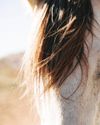
TRAINING THE SENSITIVE HORSE
Shift your mindset and grow your sensitive horse's pressure-handling skills to improve his confidence and your riding enjoyment.